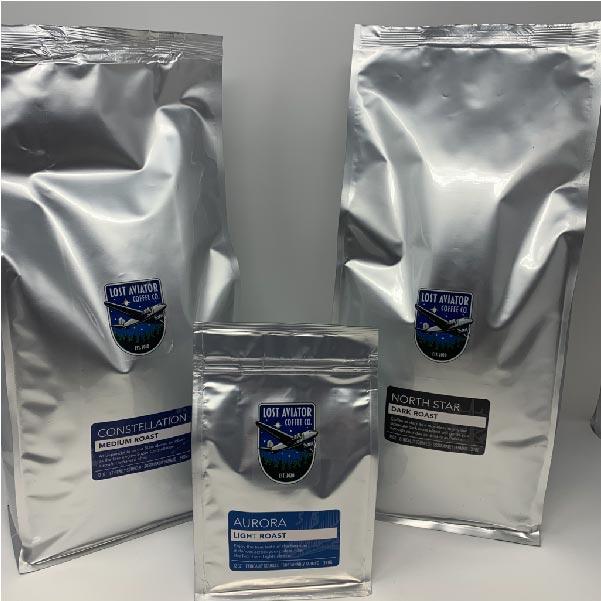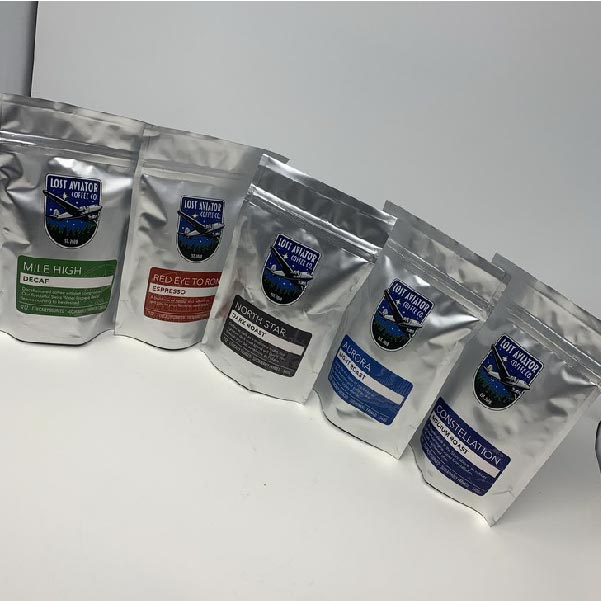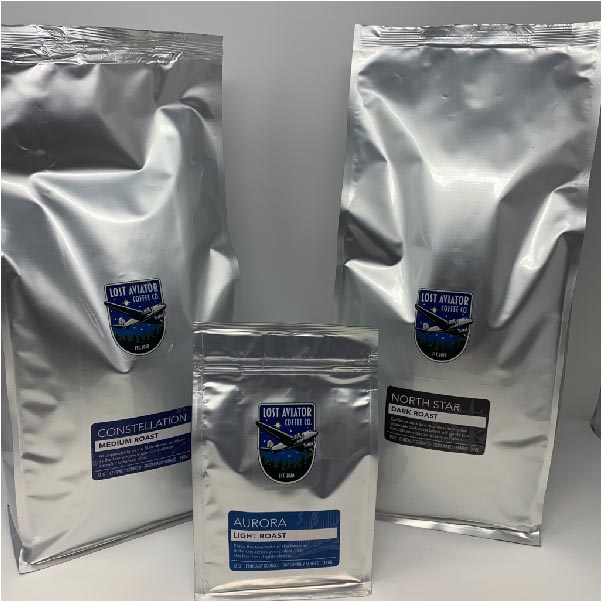
Can you Drink Coffee with Sinus Infection?

Introduction
Sinus issues can be a frustrating and debilitating experience, leaving many individuals searching for relief. One common question that arises is whether coffee consumption can impact sinus health. Given coffee's widespread popularity and the prevalence of sinus problems, it's important to understand the potential relationship between the two. In this comprehensive article, we'll delve into the complex interplay between coffee and sinus conditions, exploring the potential benefits, drawbacks, and nuances that individuals should be aware of.
The Sinus Anatomy and Function
The human sinus system consists of a network of hollow cavities located within the skull, just behind the nose and eyes. These sinus cavities, known as the paranasal sinuses, are lined with a thin layer of mucous membrane. This membrane plays a crucial role in trapping and filtering airborne particles, as well as facilitating the drainage of mucus from the sinuses to the nasal passages.
Sinus Cavities and Their Locations
The paranasal sinus system is composed of four main pairs of sinus cavities:
- Frontal Sinuses: Located in the forehead, above the eyes
- Maxillary Sinuses: Situated in the cheekbones, underneath the eyes
- Ethmoid Sinuses: Positioned between the eyes, near the bridge of the nose
- Sphenoid Sinuses: Situated deep within the skull, behind the eyes
These sinus cavities work together to maintain optimal nasal and respiratory function, ensuring the effective filtration and humidification of the air we breathe.
Sinus Mucus Production and Drainage
The sinus cavities are lined with specialized glands that produce a thin, watery mucus. This mucus serves several essential purposes:
- Trapping and filtering out airborne particles, such as dust, pollen, and microorganisms
- Moisturizing the nasal passages to facilitate breathing
- Draining excess mucus from the sinuses through the nasal passages
Proper sinus mucus production and drainage are crucial for maintaining sinus health and preventing the buildup of mucus, which can lead to sinus discomfort and infections.
Sinus Conditions and Causes
Sinus issues can arise from a variety of factors, ranging from environmental irritants to underlying medical conditions. Some of the most common sinus-related problems include:
Acute Sinusitis
Acute sinusitis is a temporary inflammation of the sinus cavities, often caused by a viral or bacterial infection. Symptoms may include facial pain, nasal congestion, and thick, discolored mucus discharge.
Chronic Sinusitis
Chronic sinusitis is a persistent or recurrent inflammation of the sinuses, lasting for 12 weeks or longer. It can be triggered by factors such as structural abnormalities, allergies, or underlying medical conditions.
Allergic Rhinitis
Also known as hay fever, allergic rhinitis is an inflammatory reaction of the nasal passages triggered by exposure to allergens, such as pollen, dust mites, or pet dander.
Structural Abnormalities
Certain anatomical features, such as a deviated nasal septum or enlarged nasal turbinates, can obstruct the proper drainage of the sinuses, leading to sinus problems.
The Potential Effects of Coffee on Sinus Health
The relationship between coffee consumption and sinus health is a complex and multifaceted one, with both potential benefits and drawbacks. Let's explore the various ways in which coffee can impact sinus function and symptoms.
Caffeine's Decongestant Properties
Caffeine, the primary active compound in coffee, is known to have decongestant properties. Caffeine is a natural vasoconstrictor, meaning it can help constrict the blood vessels in the nasal and sinus passages, reducing inflammation and swelling. This can temporarily alleviate symptoms of sinus congestion and pressure.
Improved Mucus Drainage
The warmth of a freshly brewed cup of coffee can also provide some relief for sinus issues. The steam from the hot beverage can help loosen and thin out thick, sticky mucus, facilitating better drainage from the sinuses through the nasal passages.
Potential Drawbacks
However, coffee's effects on sinus health are not entirely positive. Caffeine is a diuretic, meaning it can increase urine production and lead to mild dehydration. Dehydration can thicken the mucus in the sinuses, exacerbating congestion and discomfort.
Additionally, the acidity of coffee may irritate the delicate lining of the sinus cavities, potentially triggering or worsening symptoms like a runny nose or post-nasal drip.
Individual Responses
It's important to note that the impact of coffee on sinus health can vary significantly from person to person. Some individuals may find relief from sinus symptoms after consuming coffee, while others may experience worsened congestion or irritation.
Coffee Allergy and Sinus Reactions
For individuals with a coffee allergy or sensitivity, consuming coffee can elicit a more severe sinus-related response. An allergic reaction to the compounds in coffee can cause the sinus passages to narrow, leading to nasal congestion, sneezing, and even the potential for complete airway closure in extreme cases.
In such scenarios, over-the-counter or prescription antihistamines and decongestants may help mitigate the allergic response, but they do not provide a permanent solution. The only way to effectively manage a coffee allergy is to avoid consuming coffee and any products containing it.
Sinus Conditions and Coffee Consumption
Preexisting sinus conditions, such as seasonal allergies or chronic sinusitis, can also be influenced by coffee intake. The effects can be both positive and negative, depending on the individual's specific circumstances.
Seasonal Allergies and Coffee
For individuals with seasonal allergies, the steam and warmth of a cup of coffee may help to reduce sinus inflammation and open up the nasal passages, providing temporary relief. However, if the coffee contains ingredients that the person is allergic to, such as milk or cinnamon, it could exacerbate sinus symptoms.
Chronic Sinusitis and Coffee
In the case of chronic sinusitis, the decongestant properties of caffeine may help alleviate sinus pressure and congestion. However, the diuretic effect of coffee can lead to dehydration, which can thicken mucus and worsen sinus discomfort.
Staying Hydrated with Coffee Consumption
Maintaining proper hydration is crucial when dealing with sinus issues, as dehydration can contribute to the thickening of mucus and the exacerbation of sinus symptoms. Since coffee is a diuretic, it's essential to balance coffee intake with adequate water consumption to ensure the sinuses remain properly moisturized.
Drinking water in addition to coffee can help offset the dehydrating effects of caffeine, providing the mucous membranes with the necessary moisture to effectively trap and clear out irritants and pathogens.
Addressing Sinus Problems Holistically
While coffee can play a role in managing sinus symptoms, it should not be considered a standalone solution. Addressing sinus issues requires a comprehensive, multifaceted approach that addresses the root causes of the problem.
Identifying and Addressing Underlying Causes
Sinus conditions can be triggered by a variety of factors, including infections, allergies, structural abnormalities, and underlying medical conditions. It's essential to work with a healthcare professional to identify the specific cause of your sinus problems and develop a personalized treatment plan.
Incorporating Lifestyle Modifications
In addition to managing coffee consumption, making certain lifestyle changes can also help alleviate sinus symptoms. These may include:
- Maintaining proper hydration by drinking plenty of water
- Practicing nasal irrigation techniques, such as using a neti pot or saline spray
- Avoiding known irritants or allergens that trigger sinus reactions
- Incorporating stress-reducing activities, as stress can exacerbate sinus issues
- Quitting smoking or avoiding secondhand smoke, which can irritate the sinuses
Seeking Medical Intervention
In more severe or persistent cases of sinus problems, medical intervention may be necessary. This could include the use of over-the-counter or prescription medications, such as decongestants, antihistamines, or nasal corticosteroids. In some instances, surgical procedures may be recommended to address structural abnormalities or chronic sinus infections.
Conclusion
The relationship between coffee and sinus health is a complex one, with both potential benefits and drawbacks. While coffee's decongestant properties and the warmth of the beverage can provide temporary relief for some individuals, its diuretic effects and the potential for irritation must also be considered.
Ultimately, the impact of coffee on sinus symptoms can vary significantly from person to person, depending on factors such as the underlying cause of the sinus issues, any existing allergies or sensitivities, and an individual's overall hydration and health status.
To effectively manage sinus problems, it's essential to adopt a comprehensive approach that includes monitoring coffee consumption, maintaining proper hydration, identifying and addressing the root causes of the condition, and, if necessary, seeking medical guidance. By taking a holistic approach, individuals can find the right balance and strategies to alleviate sinus discomfort and improve their overall respiratory health.





























